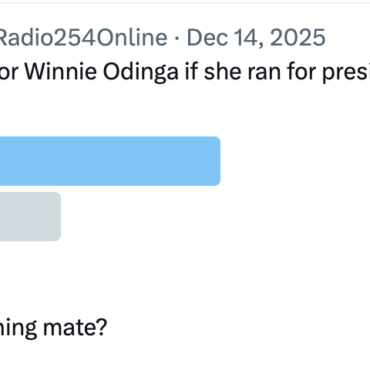In 2024, Kenyan music is not just surviving—it’s thriving. New data from Spotify reveals that Kenyan artists were discovered by new listeners over 95 million times, with fans across the globe spending more than 120,000 hours streaming their music. Over 16 million user-created playlists now include Kenyan songs, with exports up by 94% and local consumption soaring 277% in just three years. As Kleptomaniax once asked in their iconic chorus: “Tuendelee ama tusiendelee?” For Kenyan music, the answer is loud and clear—we’re moving forward, and we’re taking the world with us.

Collaborations That Cross Borders and Genres
The spirit of collaboration has fueled exponential reach. Kenyan artists are increasingly working across genres and borders. From Wakadinali working with Suzzanah Owiyo to Nikita Kering with Lilmaina, cross genre and even intergenerational collaborations like Nameless and a revived Ethic Entertainment are in vogue. And even when artistes that are likely to work together keep doing it like Bien and Bensoul, a mega hit like Extra Pressure is an organic consequence. Moreover international partnerships—like those of Khaligraph Jones with African and American rappers—further extend Kenyan influence. Even platforms like TikTok are playing a role, pushing viral Kenyan remixes into foreign timelines.
A Cultural Authenticity That Resonates Globally
Kenyan musicians are winning not by copying the West, but by being proudly Kenyan. Artists like Prince Indah bring the raw emotion of Luo Benga to digital platforms, while Octopizzo peppers his music not only with Sheng and street slang but traditional sounds as seen in his critically acclaimed albums Jungle Fever and Kich Ka Liech, exporting Nairobi’s soul to Berlin, Atlanta, and beyond. A new generation of artistes like Mutoriah, Jumadi Akoth, Coster Ojwang, Idd Aziz ,Sofiya Nzau among others explore modern genres with vernacular lyrics that have seen them gain regional and global traction. This authentic expression has made Kenyan music distinctive—and in the globalized algorithmic age, distinctiveness sells.
Genre Innovation That Speaks to the Times
Kenyan artists are not afraid to innovate. From the rise of arbantone—a new sound blending Gengetone, reggaeton and Afrobeat, with nostalgic sampling—to the revival of traditional styles like Benga in modern arrangements, Kenya is shaping rather than following global trends. In a post sauti Sol world, acts like Bensoul, Nviiri, Charisma and Okello Max are carrying Kenyas afro fusuion flag high,each with its own set of vibrant hues and shades that look different from the rest. Lilmaina’s NAKAM SAI, an arbantone banger, became the most streamed Kenyan track on Spotify in 2024, resonating deeply with Gen Z listeners both at home and abroad.
A Generation That Speaks to Youth, and with Youth
The Kenyan music scene is plugged into youth culture—literally. Gengetone’s raw, energetic vibes, the protest-conscious bars of Wakadinali, and the online presence of emerging voices like Ssaru and Maandy have helped Kenyan music become the soundtrack of a generation. No surprise, then, that streams for female Kenyan artists outside the country grew by 98% in 2024. The new crop isn’t just reflecting youth—they’re redefining it.
Professionalism and Industry Structure Are Catching Up
The rise in global attention is matched by increasing professionalization within Kenya’s music scene. Njerae, for instance, recently signed to Universal Music Group, signaling that international labels now see Kenya as more than just a talent pool—it’s a market. Even locally, the story of failing labels is steadily but surely being unwritten with the examples of Kaka Empire, Sol Generation and OBY Music that have defied time. More polished rollouts, better distribution, and strategic branding mean Kenyan music is now export-ready in form as well as content.
Digital Platforms Have Leveled the Playing Field
Streaming platforms like Spotify have opened the floodgates for Kenyan music to reach ears around the globe. Hundreds of Kenyan artists have featured on Spotify’s editorial playlists, creating pathways that once required gatekeepers and expensive labels.Artists like Bien, Octopizzo, and Wakadinali are reaping the rewards. Octopizzo’s KICH KA’ LIECH landed him on Spotify’s Global Impact List, while Bien emerged as the most streamed Kenyan artist in 2024.
The Way Forward: From Movement to Industry
Spotify’s Head of Music for Africa, Phiona Okumu, aptly put it:“Kenyan music is no longer just a regional phenomenon but a significant player on the global stage.”This momentum must now translate into deeper infrastructure: equitable royalties, local label support, training programs, and better event circuits. As Kenyan artists continue to blend authenticity with innovation, backed by digital platforms that democratize discovery, the future looks bright. Tuendelee!
Written by Otieno Arudo





